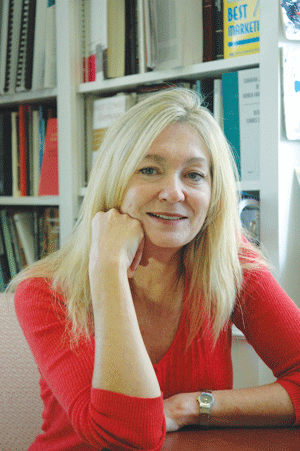Despite the steady increase in the number of racialized lawyers practising in Ontario, many continue to feel alienated from the dominant culture of the profession and believe they’re often not getting the same opportunities for advancement as their peers.

That’s just one of the findings in a consultation paper presented to Convocation on Oct. 30. The report is the work of the Law Society of Upper Canada’s challenges faced by racialized licensees working group. The LSUC created the working group in 2012 to study the challenges faced by racialized lawyers and paralegals and consult on strategies for enhanced inclusion at all career stages.
Ontario’s legal profession has seen a steady increase in the number of racialized lawyers in the last two decades. They accounted for 12 per cent of the profession in 2009, 17 per cent in 2010, 21 per cent in 2011, and 23 per cent in 2012.
Despite the obvious progress, anecdotal evidence and some research demonstrate that barriers remain. “We decided to embark on a more organized effort,” says Josée Bouchard, director of equity at the LSUC. “We hired a consultant to examine the barriers that existed and the progress that was being made, including engagement with groups like the Canadian Association of Black Lawyers.”
More particularly, Convocation asked the working group to identify challenges faced by racialized licensees in different practice environments, including entry into practice and advancement; look at factors and practice challenges faced by racialized licensees that could increase the risk of regulatory complaints and discipline; consider best practices for preventative, remedial, and support strategies; and, if appropriate, design and develop preventative, remedial, enforcement, regulatory, and support strategies for consideration by the equity and other committees.
The working group discovered racialized lawyers believed discriminatory behaviour and assumptions were “common features of their everyday professional experience.” They also believed their sense of alienation and lack of opportunity sometimes forced them to enter sole practice even when they felt unprepared to do so. Finally, many racialized lawyers lacked a strong professional network and weren’t aware of or didn’t have access to the mentoring they desired.
Racialized paralegals faced even greater challenges, reporting even lower success rates in finding suitable employment than lawyers.
To address these issues, the working group is considering recommending the adoption of several internal programs including enhancing the equity compliance program, conducting an internal equity audit, collecting more internal data, and developing a more diverse and inclusive public image for the LSUC.
Prof. Michael Ornstein of York University, who authored a report on race and gender for the LSUC in 2010, believes the profession has made considerable progress on the issue but says there’s still lots to do.
“We’re only now beginning to deal with the complexities of the issues,” he tells Law Times. “There’s a lot of progress in the general sense but there are still real structural barriers around the internal character of the profession, things like entry to and partnerships in big firms who tend to be heavily institutionalized.”
To outsiders, the rituals that imbue big firms can have a “certain strangeness” that may seem archaic and unfair, he notes.
“It has a lot to do with the style of interaction, the way in which interviews take place, the inherent rewards for people who have cultural capital characterized by such things as having lawyers for parents or upper-class upbringings. Going to law school, for example, doesn’t erase the difference between poor people and people of real privilege. By the same token, nobody can escape their culture.”
Further complicating the issues is the fact that racialized lawyers aren’t a homogeneous group.
“Averages are not very useful,” says Ornstein.
“You may find that there are certain groups of non-whites who have done very well and are not facing the same barriers that other racialized professionals are facing.”
The report bears Ornstein out. Statistics collected by the working group shows black and South Asian lawyers are proportionately more likely to be in small and sole practices while they’re proportionately much less likely to be in medium and large firms.
By way of example, about 47 per cent of white lawyers and 47 per cent of Chinese practitioners tend to be in firms with four or fewer lawyers while 75 per cent of black lawyers fall into this category. At the other end of the spectrum, only about eight per cent of black lawyers work at firms with more than 100 lawyers. That compares to about 23 per cent of white lawyers and 21 per cent of Chinese lawyers.
In discussing the report at Convocation last week, Bencher Avvy Go spoke about the difficulties racialized students have in securing articling positions in Toronto.
“Because we live in a diverse society, sometimes we forget that racism exists,” she said.
Bencher Janet Leiper noted some lawyers think they’re “immune to prejudice” because of their education.
“However, we are human like everyone else,” she said.
The law society is inviting input on the report presented to Convocation last week. It will be accepting written submissions until March 1, 2015.

 That’s just one of the findings in a consultation paper presented to Convocation on Oct. 30. The report is the work of the Law Society of Upper Canada’s challenges faced by racialized licensees working group. The LSUC created the working group in 2012 to study the challenges faced by racialized lawyers and paralegals and consult on strategies for enhanced inclusion at all career stages.
That’s just one of the findings in a consultation paper presented to Convocation on Oct. 30. The report is the work of the Law Society of Upper Canada’s challenges faced by racialized licensees working group. The LSUC created the working group in 2012 to study the challenges faced by racialized lawyers and paralegals and consult on strategies for enhanced inclusion at all career stages.